Delhi's stinking streets latest casualty in AAP, BJP war
- Published
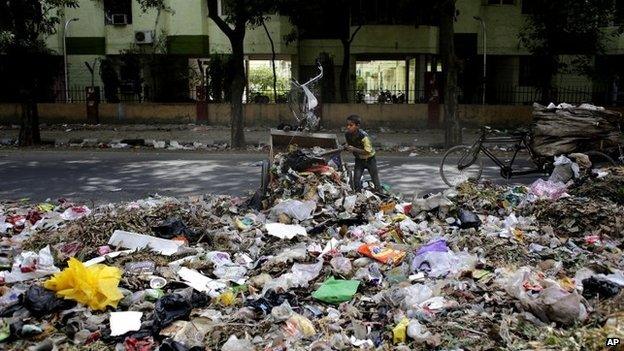
The mounting garbage in Delhi is another symptom of the AAP, BJP war
A crisis in waste disposal in India's capital Delhi has become the latest battleground for local and national governments at loggerheads.
Unlike in much of India, Delhi's Aam Aadmi Party (AAP)-run local government does not have absolute administrative powers over the state. Control of the state's police force, land, and law and order rests with the BJP-controlled centre.
The AAP has consistently campaigned for greater autonomy for the state, and its four month tenure has been peppered with confrontations.
The BBC's Ayeshea Perera looks at some of the issues fuelling the angry rhetoric.

Rubbish on the roads
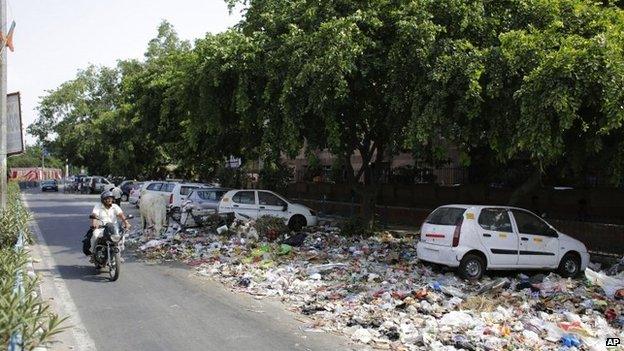
15000 tonnes of garbage are littering Delhi's streets
The latest sticking point is over the collection of waste in some areas of the capital.
More than 15,000 tonnes of waste are lying on the streets of East Delhi because municipal council workers have refused to collect rubbish for 10 days, over the failure to pay salaries.
Delhi is thought to generate around 1500 tonnes of waste every day.
AAP had refused to release money to pay the salaries, and contends that the BJP-run municipal council was allocated plenty of funds under the previous administration. They have also accused the municipal council of creating "ghost jobs" that ate up the money.
In a ruling on Friday however, the Delhi High Court directed the AAP government to release the money, saying that the volume of rubbish on the street was creating a serious health issue.
The workers called off the strike soon after the ruling, after authorities reassured them that they would get paid.

The 'fake degree' controversy
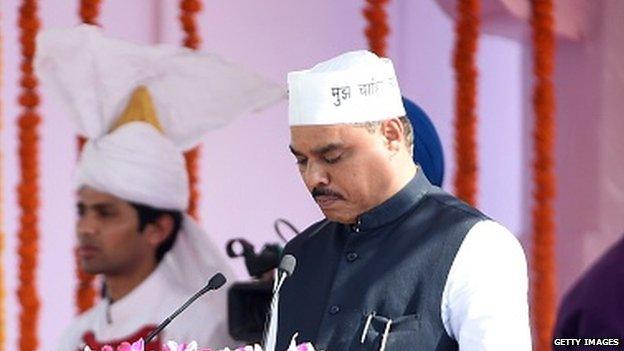
Mr Tomar says that claims against him are "baseless"
The arrest and subsequent resignation of AAP's law minister Jitender Singh Tomar over allegations that he faked his degree has been another controversy.
Mr Tomar, who is currently in police custody, was arrested after Delhi police said they had sufficient evidence to suggest that he did not hold a valid degree.
The AAP has called the entire issue a BJP conspiracy and accused them of using the issue to target the party, although new evidence has prompted the party to backtrack a little.
Indian media reported that Mr Tomar may be sacked from the party as he may have "misled" them.
However the AAP has also called for investigations into similar allegations against the minister of human resource development Smriti Irani and BJP Lok Sabha member Ram Shankar Katheria.

The power to appoint
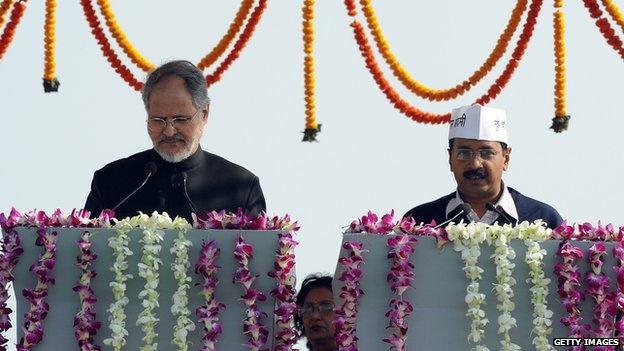
Najeeb Jung and Arvind Kejriwal have been locked in a battle over administrative powers
But the AAP's largest complaint is with Delhi's Lieutenant governor Najeeb Jung, the constitutional head of the state. Many of the disagreements have arisen over who can appoint, and transfer bureaucrats.
Matters came to a head when Mr Jung appointed Indian Administrative Services (IAS) officer Shakuntala Gamlin as the state's chief secretary, despite serious objections by Mr Kejriwal.
Similar controversies arose over the appointment of the state's home secretary.
Mr Jung nominated Dharam Pal to the post, but the AAP government raised serious objections to the decision and passed an order cancelling the appointment. Mr Kejriwal subsequently named senior bureaucrat Rajendra Kumar to the position.
Two days ago, local media reported that both Mr Pal and Mr Kumar had showed up for work and discharged various duties.
The nomination of the head of the state Anti-Corruption Bureau (ACB) has followed a similar trajectory.
Both Mr Jung and Mr Kejriwal accuse each other of acting outside the power granted to them by the constitution.
- Published4 March 2015
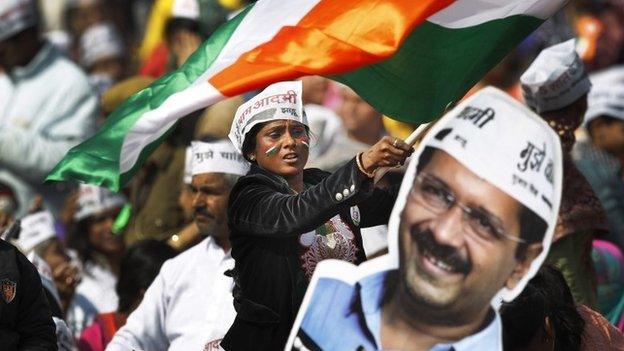
- Published11 June 2015
